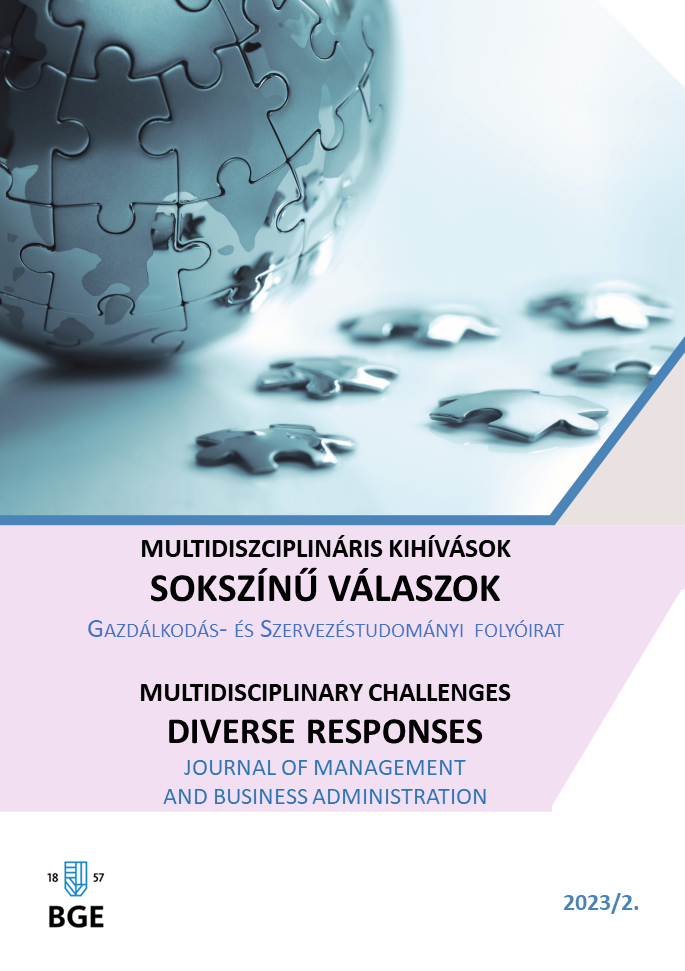Motivation at Individual and Organisational Level
Abstract
Motivation is a critical aspect of individual and organizational performance, as it drives individuals to work towards achieving their goals and organizations to meet their objectives. This publication provides a brief overview of the factors that influence motivation and how they can be leveraged to increase motivation, it also highlights the importance of creating a work environment that supports and fosters motivation at both the individual and organizational level.
At the individual level, motivation is influenced by a variety of factors. Motivation can be intrinsic or extrinsic. Intrinsic motivation is driven by the internal desire to do something because it is enjoyable, satisfying, or fulfilling, including personal goals, values, and beliefs. Extrinsic motivation, on the other hand, is driven by external factors such as rewards, recognition, or incentives. Individuals who are intrinsically motivated tend to be more creative, engaged, and committed to their work, while those who are extrinsically motivated may only perform well when the incentives are present. At the organizational level, motivation is influenced by factors such as organizational culture, leadership, job design, and performance management practices. Effective leadership, a positive organizational culture, and a supportive work environment can all contribute to higher levels of motivation among employees. Motivation is crucial in achieving goals and objectives. Organizations use a variety of strategies to motivate employees, such as providing monetary incentives, recognition programs, career advancement opportunities, positive work environment. Effective motivation strategies can lead to increased productivity, job satisfaction, and employee retention.
However, motivation is not a one-size-fits-all concept, as individuals and organizations may have different motivational drivers. It is important for individuals to understand their own motivational factors, while organizations need to identify the drivers of motivation for their employees. By understanding motivation at both the individual and organizational levels, individuals and organizations can work together to create a motivating environment that fosters success and growth.
References
Adams, J. S., 1963. Toward an understanding of inequity. The Journal of Abnormal and Social Psychology, 67(5), 422-436. https://doi.org/10.1037/h0040968
Bakacsi, Gy., 2010. A szervezeti magatartás alapjai. Aula Kiadó.
Bakacsi, Gy., 2015. A szervezeti magatartás alapjai. Semmelweis Kiadó.
Balogh G. (et al.), 2005. HR – Emberi erőforrás – menedzsment felsőfokon. Menedzsment Kiadó, Budapest.
Baranyai, A., 2017. Szenvedély nélkül nincsen munkahelyi siker? [online] Elérhető: https://hvg.hu/brandchannel/HVG_konferencia_20170202_szenvedely_nelkul_nincsen_munkahelyi_siker (2023.10.13)
Chapman, G. & White, P., 2013. A munkahelyi elismerés 5 nyelve. Harmat Kiadó.
Chapman, G. & White, P., 2019. A munkahelyi elismerés 5 nyelve. Harmat Kiadó.
Csedő, Z. & Zavarkó, M., 2019. Változásvezetés. Akadémiai Kiadó. https://doi.org/10.1556/9789634544104
Csenge, V., 2019. A munkahelyi elismerés 5 nyelve. Legacy: A szervezetfejlesztés és mi. [online] Elérhető: https://legacykft.blog.hu/2019/03/08/a_munkahelyi_elismeres_5_nyelve (2023.10.12)
Dobák, M. & Antal, Zs., 2016. Vezetés és szervezés Szervezetek kialakítása és működtetése. Akadémiai Kiadó.
Farkas, F., Balogh, G. & Rideg, A., 2015. Menedzsment alapvetések és funkciók. Pécsi Tudományegyetem Közgazdaságtudományi Kar.
Görög, M., 2013. Projektvezetés a szervezetekben. Panem Könyvek.
Hegedűs-Gál, Cs., 2022. Motivációs elméletek és alkalmazásuk az emberi erőforrás menedzsmentben. [online] Elérhető: https://www.palyaorimotivatio.hu/news/motivacios-elmeletek-es-alkalmazasuk-az-emberi-eroforras-menedzsmentben/ (2023.04.23.)
Híres, N., 2023. Mi a motiváció? Motivációs eszközök és a motiváció 3.0. [online] Elérhető: https://norberthires.com/motivacio/ (2023.10.13)
Hofmeister-Tóth, Á., 2018. A fogyasztói magatartás alapjai. Akadémiai Kiadó.
Kovács, K., 2006. Projekttervezés és projektciklus-menedzsment ismeretek a közigazgatásban. Magyar Közigazgatási Intézet, Budapest. [online] Elérhető: https://drive.google.com/file/d/1a8KANO9JGmfRZlgfRsa2v4zV2Pr-dlC8/view (2023.03.10.)
KÜRT, 2019. Szerepek az agilis szervezetben – HR. Kürt Akadémia. [online] Elérhető: https://kurtakademia.hu/blog/szerepek-az-agilis-szervezetben-hr/ (2023.03.10.)
Pekk, L. & Háry, A., 2021. A Tudásmenedzsment szerepe a technológiai kompetenciák menedzselése során. Multidiszciplináris kihívások, sokszínű válaszok. 2021(2), 140-169. https://doi.org/10.33565/MKSV.2021.02.07
Pink, D. H., 2010. Motiváció 3.0, Ösztönzés másképp. HVG Könyvek Kiadó.
Repka, Á., 2022. Az 5 munkahelyi szeretetnyelv, amivel megbecsülik a dolgozót. HVG Pszichológia Magazin. [online] Elérhető: https://hvg.hu/pszichologiamagazin/20220925_Az_5_munkahelyi_szeretetnyelv_amivel_megbecsulik_a_dolgozot (2023.10.12)
SprintConsulting, 2023. A motiváció 3.0-ról. [online] Elérhető: https://www.sprintconsulting.hu/sprint-blog/a-motivacio-3-0-rol/ (2023.10.12)
Szűcs, P., 2009. Vezetői szerepek és bizalom a hálózatokra épülő gazdaságban Vezetéstudomány, 40(7-8). 49-55.
Szűcs, P., 1995. Vállalati szervezeti változások: lehetőségeink és korlátaink. Marketing & Management, 29(4). 64-68. [online] Elérhető: https://journals.lib.pte.hu/index.php/mm/article/view/2415 (2023.04.09.)
Vágány, J., Fenyvesi, É. & Kárpátiné Daróczi. J., 2013. A bizalom és az érzelmi intelligencia szerepe a szervezeti tagok "együttműködöbbé" válásában. Agora. 34-48.


























